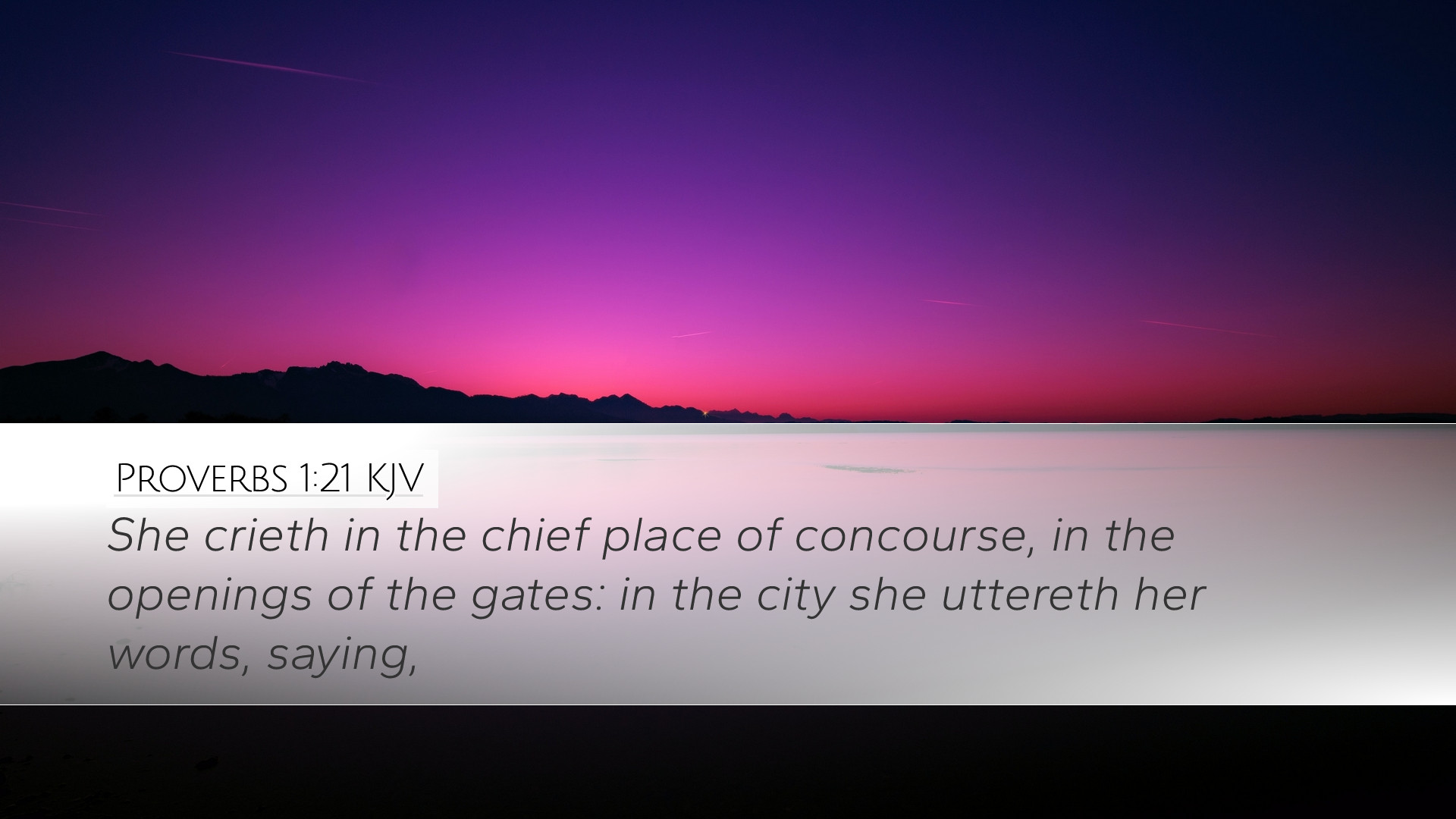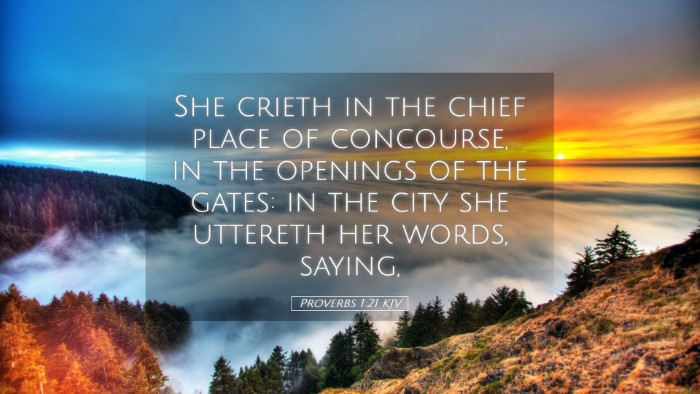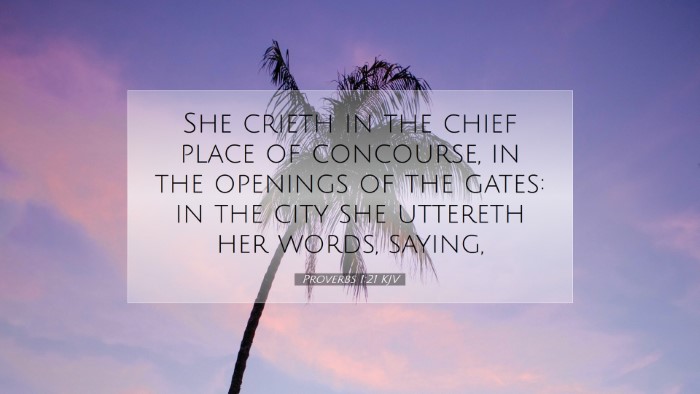Commentary on Proverbs 1:21
Proverbs 1:21: "She crieth in the chief place of concourse, in the openings of the gates: in the city she uttereth her words."
Introduction
The opening chapters of Proverbs introduce the personification of Wisdom, depicted as a woman calling out to the people. In this verse, her voice resonates in the most public and significant places of society. This commentary summarizes insights from notable public domain scholars, lending depth to the understanding of this powerful verse.
Meaning of "Wisdom's Cry"
Matthew Henry highlights that Wisdom's call is universal and available to everyone. She does not confine herself to secluded locations; instead, her words echo in the "chief place of concourse"—the areas where people gather. This indicates that the pursuit of wisdom is not just for the elite, but for all who seek it.
The Significance of Public Spaces
Albert Barnes points out the strategic significance of public places mentioned in this verse. By proclaiming her message in the gateway and market, Wisdom seeks to reach a diverse audience—men and women of all walks of life. This setting embodies the heart of daily living, unhindered by societal distinctions, underscoring God's desire for wisdom to permeate all layers of society.
The Role of the Gates
Adam Clarke elaborates on the symbolism of "gates." In ancient cities, gates were not just entrances but hubs of activity. Laws were proclaimed, decisions were made, and community affairs were discussed there. Thus, Wisdom positioning herself at the gates signifies the necessity of wise decision-making in the public sphere.
- Judicial Decisions: The gates served as a place for judicial matters; thus, Wisdom advocates for righteousness in civic matters.
- Economic Transactions: The marketplace was a center of commerce, where fair dealings were paramount, so Wisdom encourages integrity.
- Community Dialogue: It emphasizes the necessity of engaging in thoughtful discussions in public affairs; Wisdom seeks to engage hearts and minds.
Implications for the Believer
This verse speaks profoundly to modern believers. The call of Wisdom is not merely an ancient lesson; it is relevant today. It's a reminder for pastors, students, and theologians that the pursuit of wisdom must permeate every aspect of life, especially in public decision-making.
Matthew Henry urges that this approach should not only be individual but also corporate; churches should endeavor to bring forth wisdom publicly, influencing societal norms and decisions.
Wisdom's Invitation
The personification of Wisdom implies a relational aspect—an invitation to engage personally with the wisdom that is being offered. This resonates with the call of Christ, who invites us to seek and knock (Matthew 7:7). The locations where Wisdom cries out reflect places where we engage with the broader culture, urging believers to participate actively in the mission of conveying God’s truths.
The Call to Action
Finally, those who hear Wisdom's call are obliged to respond. Albert Barnes emphasizes that simply hearing the call is not enough; action is required to embrace and apply the wisdom offered. The public cry from Wisdom can lead to transformation, both personally and corporately, requiring the community to actively listen and seek understanding.
Conclusion
In summary, Proverbs 1:21 encapsulates a profound call for wisdom in the public square. The insights gathered from Matthew Henry, Albert Barnes, and Adam Clarke converge on the idea that wisdom is universally accessible, strategically positioned in vital societal areas, and essential for making righteous decisions. As believers, we are compelled to seek this wisdom actively, influencing our communities for the better as we heed the cry of the wise woman in the streets.


